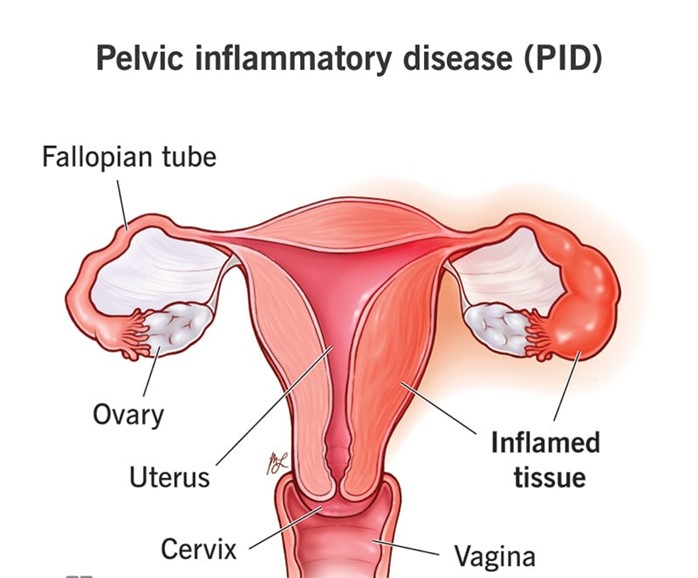A nurse is caring for a male client who has a new diagnosis of genital herpes (HSV 2). Which of the following findings should the nurse expect?
White- or flesh-colored papillary growths in the genital area
Green penile discharge
Influenza-like symptoms
Anuria
The Correct Answer is C
Choice A: White- or flesh-colored papillary growths in the genital area are not the correct answer because they are more likely a finding of another STI, such as HPV. HPV can cause genital warts that look like small bumps on or around the genitals. Genital herpes does not cause warts, but blisters or sores that may burst and crust over.
Choice B: Green penile discharge is not the correct answer because it is more likely a finding of another STI, such as gonorrhea. Gonorrhea can cause a thick, yellow-green discharge from the penis that may have a foul odor. Genital herpes does not cause discharge from the penis but may cause pain or burning during urination.
Choice C: Influenza-like symptoms are the correct answer because they are a possible finding of genital herpes. Genital herpes can cause systemic symptoms such as fever, headache, muscle aches, or swollen lymph nodes during an outbreak. These symptoms may resemble those of influenza (the flu) but are caused by HSV infection.
Choice D: Anuria is not the correct answer because it is not a finding of genital herpes. Anuria is a condition that causes a complete absence of urine output due to kidney failure or obstruction. Genital herpes does not affect the kidneys directly but may cause urinary retention if there is severe swelling or pain in the genital area.

Nursing Test Bank
Naxlex Comprehensive Predictor Exams
Related Questions
Correct Answer is C
Explanation
Choice A: Ask the client's English-speaking family member to translate. This action is not appropriate because it may compromise the accuracy and confidentiality of the information. The family member may not have sufficient medical knowledge or vocabulary to translate correctly or may omit or alter some details due to personal bias or embarrassment.
Choice B: Use a translation dictionary to reinforce the teaching. This action is not appropriate because it may be time-consuming and ineffective. The translation dictionary may not have all the relevant terms or phrases or may provide inaccurate or ambiguous translations. The nurse may also lose the client's attention or interest by relying on the dictionary.
Choice C: Seek assistance from a facility-approved interpreter. This action is appropriate because it ensures the quality and clarity of the communication. The facility-approved interpreter is a professional who has the skills and training to provide accurate and unbiased translation of the information. The interpreter can also facilitate the interaction and feedback between the nurse and the client.
Choice D: Ask an assistive personnel (AP) who speaks the client's language to serve as an interpreter. This action is not appropriate because it may violate the scope of practice and ethical standards of the AP. The AP may not have the qualifications or authority to provide interpretation services or may have a conflict of interest or role confusion with the client. The AP may also have other duties or responsibilities that may interfere with the interpretation process.

Correct Answer is D
Explanation
Choice A:This response suggests that a physical examination is necessary before providing contraceptive advice. While a healthcare provider may conduct a physical examination as part of comprehensive care, making it a prerequisite for discussing contraception can create barriers for adolescents seeking information. Emphasizing a physical exam may deter open communication, as adolescents might feel apprehensive or judged. Effective contraceptive counseling should prioritize building rapport and understanding the individual's needs and concerns before proceeding to clinical
Choice B: "You are so young. Are you ready for the responsibilities of a sexual relationship?" This response is inappropriate and judgmental because it implies that the client is too immature or irresponsible to have a sexual relationship. It also discourages the client from seeking help or information from the nurse and may make her feel ashamed or guilty about her sexuality.
Choice C: "Because of your age, I think that a barrier method would be the best choice." This response is inappropriate and paternalistic because it assumes that the nurse knows what is best for the client without considering her individual situation or preferences. It also limits the client's options and may not address her specific needs or concerns.
Choice D:This response is appropriate as it seeks to gather more information about the adolescent's sexual activity, which is crucial for providing tailored contraceptive advice. Understanding the individual's sexual behavior, frequency of activity, number of partners, and risk factors allows the healthcare provider to recommend the most suitable contraceptive methods and address any concerns about sexually transmitted infections. The Centers for Disease Control and Prevention highlight the importance of personalized counseling that takes into account the adolescent's specific circumstances to promote effective contraceptive use and sexual health.

Whether you are a student looking to ace your exams or a practicing nurse seeking to enhance your expertise , our nursing education contents will empower you with the confidence and competence to make a difference in the lives of patients and become a respected leader in the healthcare field.
Visit Naxlex, invest in your future and unlock endless possibilities with our unparalleled nursing education contents today
Report Wrong Answer on the Current Question
Do you disagree with the answer? If yes, what is your expected answer? Explain.
Kindly be descriptive with the issue you are facing.
